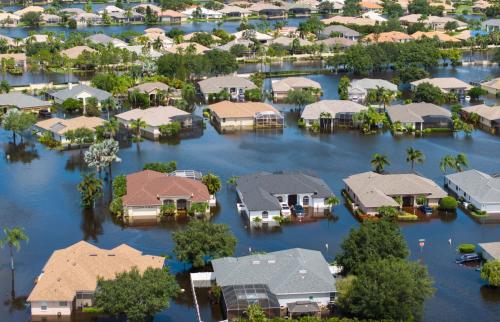For Japan, Germany and Switzerland, meeting electricity demand while stalling or phasing out nuclear energy will not be easy, cheap, or clean. Each country relies on nuclear power to generate substantial amounts of its electricity (roughly 15 percent in Japan, 23 percent in Germany, and 40 percent in Switzerland). New electricity capacity in these countries will be replaced by natural gas, coal, renewables, and electricity imports. Germany currently imports nuclear energy from France and the Czech Republic and will likely continue to do so, despite Chancellor Angela Merkel’s assertions to the contrary. And while European environmentalists are likely to be thrilled by the decisions in Berlin and Bern (and, more recently, in Rome, where the government has decided not to pursue new nuclear projects), they may be less excited that this will require replacement of large amounts of baseload electricity with generation from (imported) carbon-emitting coal and natural gas. Until a technically adequate, commercially viable energy storage solution comes to the fore, the stark reality is that the penetration into the electricity mix of renewable sources will be limited.
Even in Germany, which has made significant progress in renewable energy development, solar and wind power generation account for just 7 percent of total electricity production. As an arsenal of resources will be required to supply electricity, these countries will also have to engage in rigorous demand-side management programs, including reducing consumption and improving electrical efficiency (in other words, “smarting” the grid).
The implications of these changes are numerous and potentially troublesome. Geopolitically, the decisions to phase out nuclear power strengthen the negotiating positions of major gas producers such as Russia, Qatar, and Algeria. Particularly for the EU, which has spent much time and political capital reducing its dependence on Russian gas, jumping the nuclear ship will not strengthen its position. With the Nord Stream pipeline (which will carry gas from Russia to Germany via the Baltic Sea) expected to come online later this year, and the Nabucco pipeline struggling to find adequate supply and experiencing cost overruns, the gas relationship between Moscow and Brussels will continue to hold court. Although shale gas, which is found in abundance in both Poland and Ukraine, would be competitive with Russian natural gas, its development in these countries is not expected in the near term and also faces opposition from environmentalists. As the French government demonstrated when they rejected shale “fracking,” (the technique used to extract shale gas), importing shale gas—potentially at the expense of greater renewable penetration—will not please environmentalists.
When political decisions are made to placate certain interests—as is the case in the nuclear phase out in Germany and Switzerland—the economic implications can be ominous. Electricity prices will likely increase, especially if governments attempt to replace nuclear power with renewable electricity. Although the high upfront costs of nuclear power are well documented, and the concerns over the storage of nuclear waste have merit, few people recognize that nuclear energy is a far cheaper and more efficient source of electricity than renewables. In a 2010 report from the International Energy Agency, nuclear energy was deemed almost as cheap as natural gas and coal-fired electricity. In Japan, where nuclear energy is largely expected to be replaced by increased natural gas consumption, prices for liquefied natural gas are still linked to oil. With post-earthquake support for natural gas prices, this link may remain for a little while longer. The result of this is high electricity prices at a time when many industrialized countries—Japan in particular—are still grasping for consistent economic growth. To see what the decisions may mean for electricity prices, just witness the reaction of a livid German industry to Chancellor Merkel’s decision.
However, perhaps the most unfortunate side-effect of this decision is the environmental one. While nuclear energy was not going to singlehandedly cure climate change, it was an invaluable tool in building a decarbonized power sector. In the wake of the Fukushima disaster, analysts from the investment bank Société Générale recently estimated that a decision by OECD countries to allow existing plants to retire as scheduled, and a refusal to build any more nuclear power facilities would add an additional 860 million tons of carbon emissions per year between 2010 and 2030, equal to a 6 percent increase over the projected emissions levels for the OECD. Since then, decisions by Germany, Switzerland, Italy and Japan are likely to accelerate the retirement schedule, meaning even higher increases in emissions.
However, there is one lingering note of optimism. If the German and Japanese governments are serious about combating climate change but resolute in their anti-nuclear policy, the scientific community will experience unprecedented pressure to produce technological breakthroughs—such as commercially viable storage technologies, or improved smart grid applications—that are decisive to reaching a decarbonized electricity sector by 2050 (which is the EU’s). No other government has challenged its energy scientists with such a bold target; as we say earlier, it would be economically unwise to do so. Yet dismissing the capabilities of Japanese, German, and Swiss scientists and engineers may be nearly as unwise and could surprise us.
The Brookings Institution is committed to quality, independence, and impact.
We are supported by a diverse array of funders. In line with our values and policies, each Brookings publication represents the sole views of its author(s).



Commentary
Op-edWhat Happens Next as the World Turns Away From Nuclear Power?
June 21, 2011